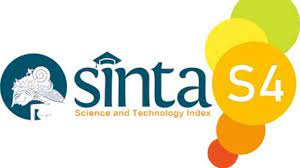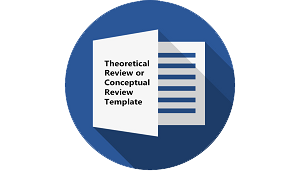Utilization and Misconceptions of Eclectic Approach in English Language Teaching: A Literature Review
DOI:
https://doi.org/10.30957/ijoltl.v8i1.709Keywords:
Eclecticism, Language Teaching, MisconceptionsAbstract
Teaching a language has always been difficult for some English teachers in the Philippines, even though there are various methods available. They eventually become confused about which method works best for a lesson because they are only concerned with successful learning for everyone and not with the most effective way of teaching and learning.
There may also be a question about what approach they can take to develop effective teaching, particularly in the English language, because misconceptions emerge in situations where teachers are only focused on the generic way of teaching. Even though the eclectic approach has been proven effective and widely used, there are classroom situations where teachers using the approach are still struggling to teach the subject matter. This has something to do with the four macro skills in English. One reason for this is a lack of the main concept, which is always used incorrectly. These difficulties and issues in teaching English have a significant impact on the students' learning interests. As a result, some students may find the subject the most difficult, and the worst-case scenario is that they simply stop learning the language. So it is with the other subjects that use English as a medium of instruction because they cannot understand the language itself.
Thus, the goal of this research is to address the issue of using an eclectic approach and dispel misconceptions about effective English language teaching. This article will also serve as a resource for future related studies.
Downloads
References
Review of the Research Studies in Second Language Acquisition, 24(2), 223-236.
Gao, L. (2011). Eclecticism or Principled Eclecticism. Creative Education. 2(4): 363-369.
Iscan, A. 2017. The Use of Eclectic Method in Teaching Turkish to Foreign Students. Journal of
Education and Practice Vol.8, No.7, ISSN 2222-1735.
Kumar, C.P. (2013). The Eclectic Method: Theory and Its Application to the Learning of English.
International Journal of Scientific and Research Publications, 3(6).ISSN 2250-3553.
Kumaravadivelu, B. (2001). Toward a Post method Pedagogy. TESOL Quarterly, 35:537-
560.doi:10.2307/3588427.
Larsen-Freeman, D. 2004. Techniques and principles in language teaching. Oxford: Oxford
University Press.
Larsen-Freeman, D. (2000). Techniques and Principles in Language Teaching (2nd ed.). Oxford:
Oxford University Press.
Larsen-Freeman, D. (2000). Techniques and Principles in Language Teaching (2nd ed.). Oxford:
Oxford University Press.
Mwanza (2017).The Eclectic Approach to Language Teaching: Its Conceptualization and
Misconceptions.
Richards, J.C., and Rodgers, T.S. (2001). Approaches and Methods in Language Teaching (2nd
Ed.). Cambridge: Cambridge University Press.
Savignon, S.J.(2002).Communicative Language Teaching: Linguistic Theory and Classroom
Practice. In Savignon, S.J.(ed). Interpreting Communicative Language Teaching. New Haven:
Yale University Press. 1-27.
Suparman. (2017). The Effectiveness of Eclectic method in Teaching Writing English of Recount
Text for the Eighth Grade Students of SMPN 1 Keruak. Jurnal studi Keislaman dan Ilmu
Pendidikan, 5 (1), 43-60.
Talidong, K and Liu Q (2020). Teaching Methods in English Language Instruction: Case of
Selected English Language Teachers in General Santos City, Philippines.
Wali, N.H. (2009). Eclecticism and Language Learning. Al- Fatih Journal. No .39. Diyala
University College of Basic Education.
Weideman, A. (2001).The Old and the New: Reconsidering Eclecticism in Language Teaching.
Lingam, 17(1):1-13. doi.org/10.5785/17-1-131.
Downloads
Published
How to Cite
Issue
Section
License
Authors who publish with this journal agree to the following terms:
- Authors retain copyright and grant the journal right of first publication with the work simultaneously licensed under a Creative Commons Attribution-ShareAlike 4.0 International License that allows others to share the work with an acknowledgement of the work's authorship and initial publication in this journal.
- Authors are able to enter into separate, additional contractual arrangements for the non-exclusive distribution of the journal's published version of the work (e.g., post it to an institutional repository or publish it in a book), with an acknowledgement of its initial publication in this journal.
- Authors are permitted and encouraged to post their work online (e.g., in institutional repositories or on their website) prior to and during the submission process, as it can lead to productive exchanges, as well as earlier and greater citation of published work (See The Effect of Open Access).












